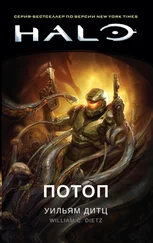Then, as the officer in charge led his team off to one side, the Chief of Chaplains for the Union Army stepped forward. In keeping with the request for a nondenominational service, he had chosen the poem “Eulogy for a Veteran” by an unknown author. Puffs of lung-warmed air accompanied his words.
Eulogy for a Veteran
Do not stand at my grave and weep.
I am not there, I do not sleep.
I am a thousand winds that blow.
I am the diamond glints on snow.
I am the sunlight on ripened grain.
I am the gentle autumn rain.
When you awaken in the morning’s hush,
I am the swift uplifting rush
of quiet birds in circled flight.
I am the soft stars that shine at night.
Do not stand at my grave and cry,
I am not there, I did not die.
The words were moving… And Mac allowed herself to cry as the chaplain backed away and the burial team took over once again. The audience was ordered to rise, and the volleys of carefully timed rifle fire began. Normally, a party of seven soldiers would fire three volleys. But in the case of this burial, there were so many salutes that two teams of riflemen were required so that each squad would have time to reload.
Gun smoke drifted through the air as the noise went on and on. Was that intentional? So the ceremony would look more impressive on television? Maybe. But Mac didn’t give a shit. She wanted her soldiers to receive the honors due them.
Once the volleys were over, a bugler played “Taps,” as the caskets were lowered into the ground. The mournful sound never failed to move Mac, and this time was no exception. Would someone play “Taps” for her someday? Of course they would. Every soldier has to die… The only question was when.
The snow fell more thickly as the spectators took their seats, and teams of soldiers folded each flag and delivered it to the next of kin. The ceremony came to a close after that, and General Herman Jones passed among the mourners, offering each a card, along with the nation’s condolences.
Mac was there as well, and some of the family members came over to speak with her. Most were pleasant, but one woman wasn’t. She was wearing a snow-dusted scarf over her long hair, her eyes were red from crying, and a handkerchief was clutched in her right fist. “How dare you come here!” the woman demanded. “Kevin was alive! I know he was! He came to me in a dream. ‘The major left us to die.’ That’s what he said. May you rot in hell.” And with that, she turned away.
Mac bit her lip and wondered if it was true. As the last of mourners left, Mac was still there, looking out over the graves, when a woman appeared beside her. She was wearing a white-knit cap and a thick coat. Another mother? Intent on damning her to hell? That’s what Mac assumed as the woman spoke. “Major Macintyre?”
Mac braced herself. “Yes?”
“I have a message for you.” The woman handed Mac an envelope. It was blank except for a presidential seal. Mac felt her heart beat a little faster. She opened it. And there, tucked inside, was a note card. Two words were scrawled on the heavy stock. “I’m sorry.”
The note hadn’t been signed, nor was that necessary. Mac felt a sense of warmth suffuse her body as she read the words again. Then, having placed the card back in its envelope, she turned to discover that the woman was gone. “I am the diamond glint on snow.” The blanket of white lay over the cemetery like a shroud.
FORT HOOD, TEXAS
Warehouse 72 was a nondescript building located in an out-of-the-way part of Fort Hood. Victoria parked her car and went inside. The air was chilly and smelled of disinfectants. A civilian was seated behind the waist-high counter. She had short hair and too much eye shadow. “Hello… How can I help you?”
“My name’s Macintyre… Kathy Ivers is expecting me.”
The woman nodded. “Right… I’ll page her.”
Ivers arrived two minutes later. She was dressed in a white coat over green OR scrubs. Her white clogs made clacking sounds as she walked. “Major Macintyre? I’m Kathy… Everything is ready. Please follow me.”
The facility was part of the Armed Forces Medical Examiner System, which was charged with carrying out autopsies on all soldiers killed in action, including those who fought for the North. The operation’s main purpose was to gather detailed information regarding how each person had been killed in order to identify deficiencies in body armor and vehicle shielding.
But there were secondary benefits as well. Especially where the examination of enemy casualties was concerned. What about their body armor? Had improvements been made? And if so, should the Confederacy copy them?
Victoria was there for another reason, however. She wanted to look at the bodies of the people her sister had left behind when she fled Pyote Field. “Leave no man behind.” That was the motto. But Robin had left five bodies behind rather than stay and fight for them. The bitch.
Ivers led Victoria back through a maze of corridors to the cold room, where the cadavers were laid out on stainless-steel tables. There were three men and two women. All were nude and, with the exception of an African-American male, looked exceedingly pale under the bright lights.
Victoria had seen dead bodies before. Lots of them. But always on the battlefield. And what she saw in front of her was unsettling. Some of the soldiers were staring at the ceiling. Others lay with eyes closed. One woman had lost an arm in the fighting. It lay next to her… And there was a wedding ring on her hand.
A Y-shaped incision had been made under the soldier’s breasts. It ran all the way down to her pubic bone. Widely spaced stitches had been used to close it. “The autopsies are complete,” Ivers explained. “Their brains were taken elsewhere for examination, but their organs were replaced.”
Victoria raised an eyebrow. “In the anatomically correct positions?”
“No, of course not,” Ivers replied. “That would be a waste of time. We dump them into the chest cavity. The effects found on or near each body are displayed next to them. Is there anything else I can do for you?”
“No, thanks,” Victoria replied.
“There are some coats hanging over there,” the tech said. “Feel free to borrow one if you get cold.” And with that she left.
Victoria eyed the bodies. They were a beginning point, a way to prepare for her latest assignment. “Kill your sister.” Her father had given the order over drinks in a nice restaurant. And who better for the job? Victoria knew Robin the way only a sister could. And she hated Robin the way only a sister could. The psychiatrist Carl Gustav Jung had a theory about that… He called it the Electra complex, meaning a psychosexual competition between a girl and her mother for the affection of her father. Except that Victoria had been forced to compete with both her mother and her sister.
Victoria knew that some people, most people, would see that as a problem. Screw them. It was, to her mind, a logical extension of the Social Darwinism upon which conservative principles were based. It made sense that she , as the person most deserving of her father’s affection, would have it. And the fact that Victoria knew what she was doing meant she was sane.
But orders to kill Robin were one thing… Getting the job done was another. There were plenty of potential obstacles. Robin wasn’t likely to have bodyguards as such… Majors didn’t rate that kind of protection. But she was in command of a battalion. And if even half of the press reports were true, Robin’s jailbirds were in love with her. So an assassin would have to get past them in order to put the bitch down.
Читать дальше
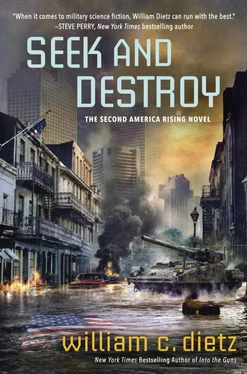
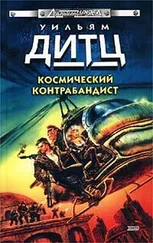
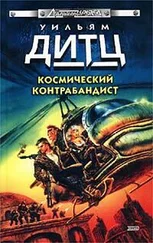
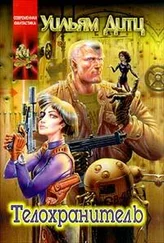
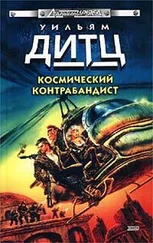
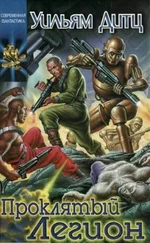
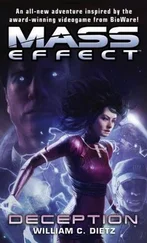

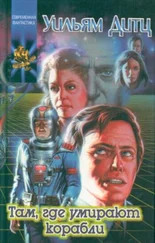
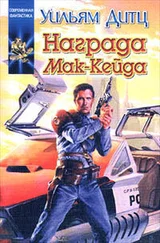
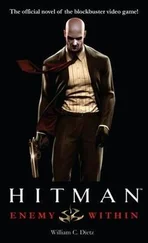
![Уильям Дитц - Избранные произведения в одном томе [Компиляция]](/books/389750/uilyam-ditc-izbrannye-proizvedeniya-v-odnom-tome-k-thumb.webp)
